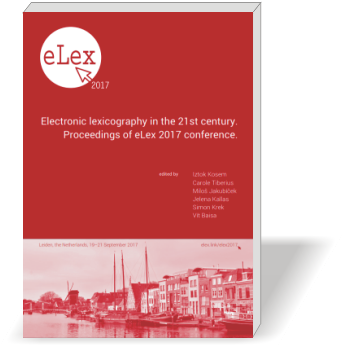

Vocabulary mismatch occurs when a user’s query does not match the content of the stored documents. Over the years, AQE methods have been suggested as an effective tool for overcoming the term mismatch problem ( Vechtomova, 2009 White & Horvitz, 2015). In this review, the focus will be on AQE.
#Babelnet thesaurus manual#
QE is of four types: Manual Query Expansion (MQE), Automatic Query Expansion (AQE), Interactive Query Expansion (IQE), and Hybrid Query Expansion (HQE). Search engines such as Google and Yahoo offer suggestion-related queries to users, where the user has the option to retain his or her query or choose the suggested query ( Wang, Lai, & Liu, 2009). The hypothesis of QE is to suggest new related words to add to the original query in order to retrieve more related documents. Some methods have been proposed to fill the knowledge gaps, one of which is Query Expansion (QE) ( Azad & Deepak, 2019 Dalton, Naseri, Dietz, & Allan, 2019). According to Belkin ( 1980), it is difficult for people to define precisely what their information need is, because that information is a gap in their knowledge, which he called the Anomalous State of Knowledge hypothesis. Although observers mandate that users’ queries should be short, comprising just two or three words, formulating the user’s queries is considered to be a tricky task ( Berget & Sandnes, 2015). To get better results, users must formulate their queries properly, through which the correct term could retrieve the related documents. Each search result comes with a title, URL address, and a snippet (a phrase or sentence taken by the search engines from the related web documents) ( Cui, Wen, Nie, & Ma, 2002).Īs the Internet is eminently usable, and online information and users’ web sites have multiplied manifold, this information is usually not organized, posing difficulties to users in fulfilling their information needs. For instance, if a person wishes to find out detailed information about (common linguistic mistakes in the Arabic language), he/she must just type in any of the search engines, and a large number of related web documents will be displayed, with the most suitable ones listed on top. One outstanding and vital service of the Internet is web search, where, with extensive web documents available on the Internet, users discover and have access to valuable data and materials through search engines. Finally, our conclusion is that QE regarding the Arabic language is subjected to additional investigation and research due to the intricate nature of this language. In this review, we primarily discuss statistical QE approaches that include document analysis, search, browse log analyses, and web knowledge analyses, in addition to the semantic QE approaches, which use semantic knowledge structures to extract meaningful word relationships. This paper, therefore, provides a review on QE for Arabic information retrieval, the intention being to identify the recent state-of-the-art of this burgeoning area. Arabic is a language with a particularly large vocabulary rich in words with synonymous shades of meaning and has high morphological complexity. While QE can be considered as a language-independent technique, recent findings have shown that in certain cases, language plays an important role. Query Expansion (QE) is being popularly used to address this limitation. Ironically, a query can be a poor representation of the information need because the user can find it difficult to express the information need. Queries can represent very different information needs. Information need has been one of the main motivations for a person using a search engine.


 0 kommentar(er)
0 kommentar(er)
